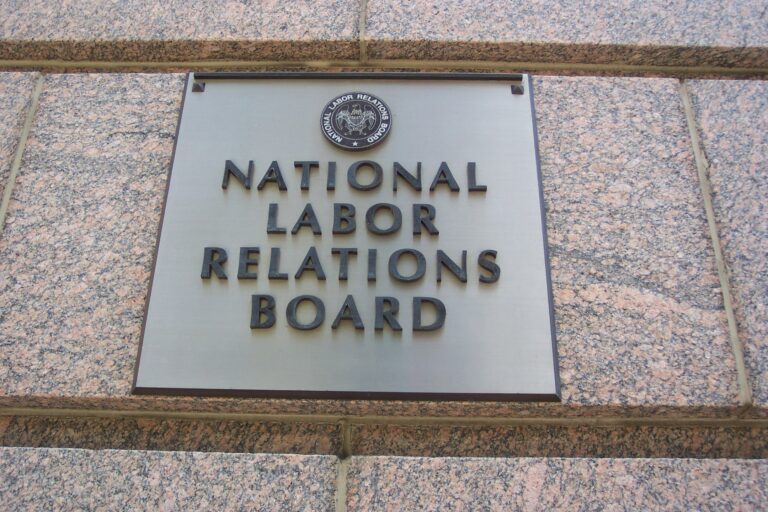Maddy Joseph is a student at Harvard Law School.
An amicus filed on Friday in Janus and based on Ben’s new article Agency Fees and the First Amendment, 131 Harv. L. Rev. 1046 urges the Court to reject Janus’s challenge on the ground that it does not raise a valid First Amendment claim. The amicus argues that mandatory agency fees should be treated not as compelled employee speech but as payments from employers to unions that merely pass-through employee pay checks. As Ben points out in his article, and as the brief argues, payments that flow through an intermediary on their way from an originator to an ultimate recipient are treated — under First Amendment caselaw — as payments from the originator to the recipient, not as payments by the intermediary.
Current agency fee jurisprudence assumes that agency fees are employees’ money that is paid by employees to unions. Although employees do receive funds from their employers earmarked for agency fees, the NLRA and state equivalents allow agreements that require those funds to be paid to the union. Indeed, as the amicus points out, under Illinois’s system, agency fees are diverted to the union before the fees are even deposited in the employee’s account.
First Amendment cases involving pass-through regimes like this attribute payments to the entity that has a “genuine choice” over where the payment is directed. For example, in Zelman v. Simmons-Harris, 536 U.S. 639 (2002), the brief explains, “the government paid tuition subsidies to parents” that eventually went to religious schools, but these payments were not attributed to the government (and thus posed no First Amendment problem) because “the parents were permitted to choose where they spent those subsidies.” On the other hand, where families lack “genuine choice” over where to direct those payments, the fact that payments pass through the families’ hands en route from government to school is constitutionally irrelevant. In those cases, the payments are treated as a “program of direct aid” flowing from the government to the schools.
Following these cases, the amicus argues, agency fees should be attributed not to employees but to the government employer for First Amendment purposes. Although agency fees do pass through employee paychecks en route from employer to union, the employee has no choice but to divert the funds to the union. Instead, the state is the entity with the choice about where agency fee money goes. As a result, the amicus concludes, the Supreme Court’s cases require that agency fees be attributed to the state employer and not to the employee for First Amendment purposes. And payments from a state to a union create no First Amendment problems for employees like Janus.
The brief, authored by Joseph Sellers and Miriam Nemeth (Cohen Millstein Sellers & Toll), is available here. Ben’s article is available here.









Daily News & Commentary
Start your day with our roundup of the latest labor developments. See all
July 8
In today’s news and commentary, Apple wins at the Fifth Circuit against the NLRB, Florida enacts a noncompete-friendly law, and complications with the No Tax on Tips in the Big Beautiful Bill. Apple won an appeal overturning a National Labor Relations Board (NLRB) decision that the company violated labor law by coercively questioning an employee […]
July 7
LA economy deals with fallout from ICE raids; a new appeal challenges the NCAA antitrust settlement; and the EPA places dissenting employees on leave.
July 6
Municipal workers in Philadelphia continue to strike; Zohran Mamdani collects union endorsements; UFCW grocery workers in California and Colorado reach tentative agreements.
July 4
The DOL scraps a Biden-era proposed rule to end subminimum wages for disabled workers; millions will lose access to Medicaid and SNAP due to new proof of work requirements; and states step up in the noncompete policy space.
July 3
California compromises with unions on housing; 11th Circuit rules against transgender teacher; Harvard removes hundreds from grad student union.
July 2
Block, Nanda, and Nayak argue that the NLRA is under attack, harming democracy; the EEOC files a motion to dismiss a lawsuit brought by former EEOC Commissioner Jocelyn Samuels; and SEIU Local 1000 strikes an agreement with the State of California to delay the state's return-to-office executive order for state workers.